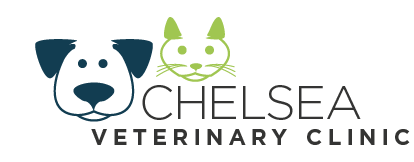Feeding Your Rabbit
 RABBITS HAVE EVOLVED TO EAT GRASS!
RABBITS HAVE EVOLVED TO EAT GRASS!
In the wild rabbits spend many hours chewing grass. This is a tough fibrous material that also contains abrasive silicates. In winter they consume dried grass that they have stored in their burrows. All year round they will top up their diet with dark green leafy weeds as well as fruit and roots that they come across.
In captivity we have developed commercial rations that are low in fibre and minerals and high in protein. Rabbits enjoy these diets and grow quickly. However, they are calorie-rich and don’t require nearly as much chewing/grinding as the natural diet. Even if grass and hay are provided the rabbit will preferentially eat the wrong foods resulting in dietary imbalances and deficiencies.
It is therefore best to keep the diet as natural as possible:
1. In the morning provide large quantities of the following:
- Grass. This should be provided as free access to “grazing areas” or freshly picked/cut grass. Grass clippings are probably best avoided as they tend to ferment.
- Hay. Fresh grass hay should be given. This may be obtained from local stockfeed and produce stores although good quality timothy hays may be available via pet shops and veterinary hospitals.
- Quality of hay should be judged by smell. If it is dry, dusty and smells bad, you can’t blame the rabbit for not eating it!
- Greens. Mixed quantities of dandelions and dark green leaves (cabbage, kale, Asian greens, carrot tops, etc.) should be given. Lettuce should be avoided.
2. If necessary then in the evening a small amount of a commercial ration may be provided. One should be selected that is as high as possible in fibre. Extruded pellets may be best.
The following day replenish hay, grass and greens in the morning but do not give further concentrate until the last ration has been totally consumed. While some rations are formulated to avoid selective feeding, others contain many different components – do not give more until ALL is eaten! Remember that no concentrate diet provides adequate wear on the teeth.
Fresh water should always be given.
There is generally no need to provide extra vitamins or minerals though a Vitamin D3 supplement may be useful for house rabbits that do not receive direct sunlight. There is some belief that supplementing calcium and Vitamin D may lead to bladder stones and it is best remembered that if a good quality complete diet is given then supplements are unnecessary.
Treats are always useful for training purposes. Chocolate and sugary treats are best avoided as dental caries have been recorded. Apple, pear (and other fibrous fruits) and carrots are ideal treats.
Remember that carrots are not a staple of any rabbit’s diet – apart from Bugs Bunny!
Wooden chews and sticks are fun for the rabbit but do not provide any additional nutrition or assist greatly in preventing dental problem.
© Copyright 2025 LifeLearn Inc. Used and/or modified with permission under license. This content written by LifeLearn Animal Health (LifeLearn Inc.) is licensed to this practice for the personal use of our clients. Any copying, printing or further distribution is prohibited without the express written consent of LifeLearn. This content does not contain all available information for any referenced medications and has not been reviewed by the FDA Center for Veterinary Medicine, or Health Canada Veterinary Drugs Directorate. This content may help answer commonly asked questions, but is not a substitute for medical advice, or a proper consultation and/or clinical examination of your pet by a veterinarian. Please contact your veterinarian if you have any questions or concerns about your pet’s health. Created on Jul 13, 2015.
